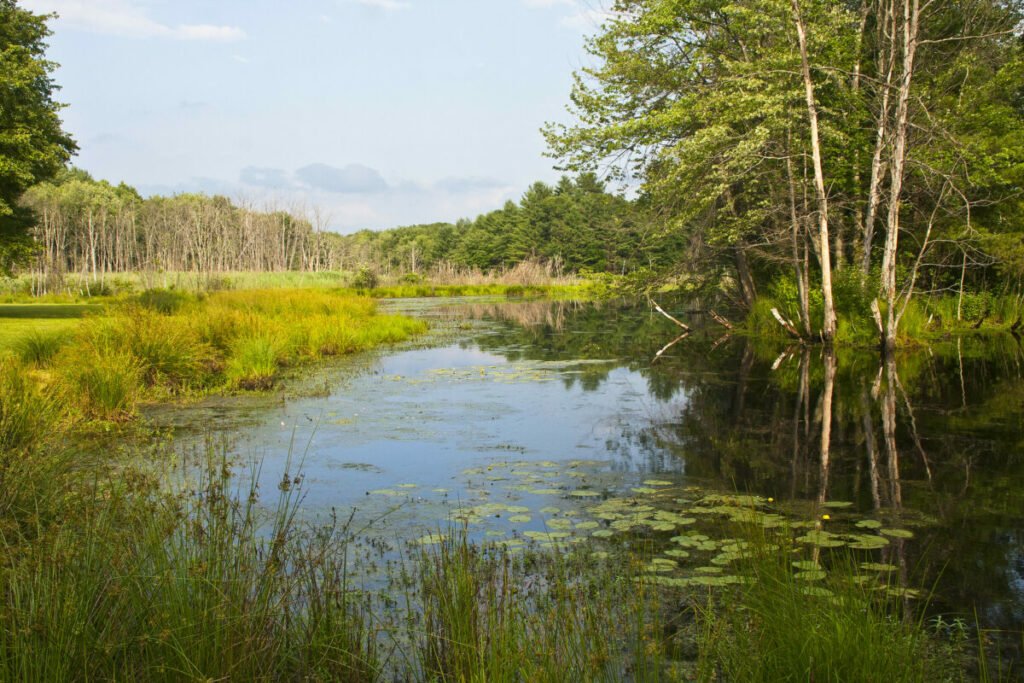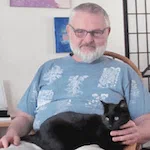Red-wing blackbirds flew overhead, their red shoulders gleaming in the afternoon sun. The air was thick with the chirping and buzzing of wild fauna. Most of them—apart from some of the insects—fled before our canoes as we penetrated the swamp, following channels invisible to the outsider’s eye.
Tall shrubs and grasses lined our channel, providing a modicum of shade against the direct rays of the sun, this vegetation caressing our crafts—and occasionally us—as we paddled in deeper and deeper. Lily pads with flowers growing from their hearts floated aside, making way for us. Frogs seated on them jumped off as we approached. Water snakes swam away, making S-shaped ripples with their wakes. Blue and green iridescent dragonflies flitted by, hovering a moment, seeming to study us before speeding on.
Most trees would become waterlogged and turn to rot with their roots steeped in so much water, but the willows and cedars and the other trees that grew here seemed to thrive, just as did the rest of the plants and animals that made this place their home.
We used to have a cottage on a small lake that we called a pond. Our little corner of the shore was not prime real estate. The shore of our property ended where the swamp began. The bottom of the pond here was too mucky and stoney to swim in, but it was where Dad kept his dory skiff, chained to a lone tree. Later, my brother Brian moored his canoe here, too, pulled up alongside Dad’s boat.
The edge of the swamp facing the pond extended about halfway toward the opposite shore. Nobody wanted this stretch. I suspect that nobody could have it either, even if they wanted it. In Massachusetts, a “great pond” is a regulated legal entity. It can be used for many things, principally recreation, but there are limits on how it can be developed. Not that this prevented the pond from deteriorating over the years due to neglect, though I understand that it has made a comeback in recent years. As far as I know, the swamp still exists and may even have been revitalized along with the rest of the pond.
* * *
I slapped at a mosquito. I took my hand away and saw the still, crumpled creature on my palm along with a smear of my own blood, the “blood-sucking helicopter’s” last meal.
“That’s the way to do it,” said Dad, who was not fond of mosquitoes, either.
I had never contemplated going into the swamp before that day. From the outside, its channels were invisible. It looked impenetrable.
I had rowed Dad’s boat past the swamp many times, eyeing its forbidding countenance from the outside. When my father and older brother suggested that we join a group that was exploring this drowned place, my reluctance was visceral, but there was a shift from apprehension to wonder. Though I know that some humans have lived in places like this, proving how adaptable a species we are, nevertheless, despite the wonder of it, I was glad that we were only visiting.


Share this post with your friends.

